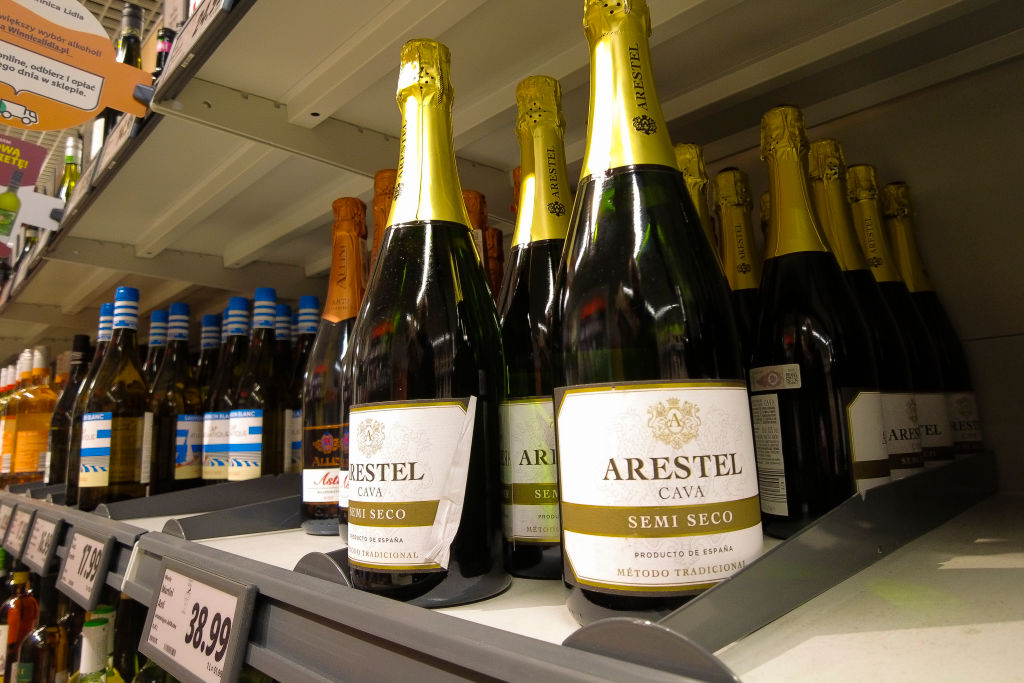The percentage of adults in the U.S. who report drinking alcohol is at a record low, according to a Gallup poll released on Wednesday.
Only 54% of adults said they consume alcohol—the smallest share since Gallup started tracking Americans’ drinking behavior in 1939. And a majority of Americans (about 53%) said they believe that even just “one or two drinks a day” is bad for their health. That’s a leap from the roughly 25% of Americans who held this view from 2001 through 2011.
[time-brightcove not-tgx=”true”]
Even the Americans who said they do drink alcohol reported consuming less of it than those in past polls. Just 24% said they’d had a drink in the past 24 hours—another record low. And 40% said they hadn’t had an alcoholic beverage in more than a week—the highest figure in more than two decades.
The decline is a recent one: From 1997 to 2023, the percentage of Americans who said they drank alcohol was 60% or higher, according to Gallup. That number dropped from 62% in 2023 to 58% in 2024 before reaching the record-low seen this year.
Why are Americans drinking less?
Researchers said these results, which were part of Gallup’s annual Consumption Habits survey conducted in July, coincide with a growing body of research in recent years that has indicated that any amount of alcohol consumption may have negative health ramifications. While some studies over the years have indicated drinking moderate amounts of alcohol could have possible benefits, many health experts now say that there is substantial evidence of the risks associated with alcohol.
In 2023, the World Health Organization said, “When it comes to alcohol consumption, there is no safe amount that does not affect health.” And at the start of this year, then-U.S. Surgeon General Vivek Murthy proposed putting a label on bottles of beer, wine, and liquor to warn Americans that alcohol is a leading cause of cancer.
Lydia Saad, Gallup Director of U.S. Social Research, stresses that her analysis of the poll notes a correlation between declining alcohol use and a growing percentage of Americans who believe moderate drinking is unhealthy—rather than asserting that the concerns are causing the trend.
Dr. Ellen Burnham, a professor of medicine at the University of Colorado School of Medicine who was not involved in the Gallup poll, says she was a little surprised by Gallup’s findings because she has often treated patients with alcohol-related conditions or complications, particularly in the past few years. While the research on the risks of alcohol consumption could be part of the reason for declining alcohol use, she says that might not be the whole explanation and posits other theories as well, including that some people might not have the disposable income to buy alcohol or may have pre-existing health conditions that could make them less inclined to drink.
According to Saad’s analysis, it doesn’t appear that the decline in alcohol use is being caused by people turning to other mood-altering substances, based on previous data. Although marijuana use, for instance, has increased in the past decade, that number has been relatively stable in recent years.
Burnham says it’s promising that the Gallup poll found that fewer people are drinking overall. But she points out that many Americans still drink and have alcohol-related health complications, and that alcohol consumption varies depending on geographic region.
“I think it remains to be seen” whether the decline in alcohol consumption will continue, Burnham says. “It’s encouraging to see that some of the educational messaging is hopefully reaching an audience, and hopefully it’s the audience that’s engaging in risky drinking and is really rethinking about their drinking habits and how to diminish them or decrease them.”
Younger people lead the trend—but fewer older adults are drinking, too
For years, younger adults have been less likely to say they drink alcohol compared to middle-aged and older adults, according to Saad’s analysis. That trend has only continued: 59% of younger adults in 2023 said they drank alcohol, compared to 50% in 2025.
Experts who previously spoke with TIME suggested that a decline in drinking among younger adults could be driven by a variety of factors, including changing views of alcohol and socialization patterns in the age group.
But fewer middle-aged and older adults are reporting drinking now compared to a couple years ago as well.
“Older folks have lived through the period when the medical advice was ‘drinking could be beneficial to you,’ so hearing that it’s now harmful to your health is a 180 for them and so they have to mentally move a bigger distance to say ‘maybe I shouldn’t be drinking,’” Saad says, explaining a possible explanation behind this trend. Younger adults, meanwhile, have likely heard about the risks associated with alcohol since they became old enough to drink, “so it’s not, I think, as much of a behavior change for them … as it would be for their parents and grandparents who have to do a real pivot in terms of how they look at the risks of drinking,” she continues.
A partisan split emerges
In previous years, researchers found little difference in the drinking behaviors of people with varying political leanings. But the percentage of Republicans who report drinking has fallen significantly over the past couple years, according to Gallup’s findings, opening a notable partisan gap. In 2023, 65% of Republicans said they drink, but that number plummeted to 46% in 2025. Meanwhile, that figure for Democrats has remained relatively steady, dropping just 3 percentage points from 64% in 2023 to 61% in 2024, and holding at 61% in 2025.
Saad says analysts found that the declining alcohol use was “largely just across the board among Republicans.” More research would need to be conducted to determine the reason for the partisan split, she says: so far, there’s no theory strong enough to explain it.

